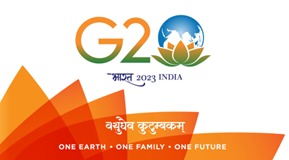Menu
- Home
- About Us
- India-Thailand Relations
- Visa/ Consular Services
- Consular Contacts
- Application Forms
- Fee for Visa to India, for Indian Passport and all other Consular Services

- Visa Services
- Passport and Related Services
- Introduction
- General Instructions
- Renewal of passport of adults

- New Passport for Newborn Child

- Renewal of passport of minors

- Duplicate Passport

- Extension of Validity

- Annexures to Passport Application Forms
- Endorsement of Spouse Name

- Deletion of Spouse Name

- Change of name of child

- Change of name of Adult

- Change of Address

- Miscellaneous Categories
- Passport Genuineness Certificate
- Public Advisory on Phasing Out of Handwritten Passports
- Person of Indian Origin (PIO) Card
- Overseas Citizen of India (OCI) Card
- Other Consular Services
- Police Clearance Certificate
- Relationship Certificate
- Resident Certificate
- NRI Status Certificate
- Transfer of Res. Certificate
- Attestation of Document
- Att. of Power of Attorney/Will
- Att. of Commercial Document
- Life Certificate/Pension papers attestation
- Life Certi/Pension Papers att.
- Emergency Certificate
- Death Certificate
- Renunciation of Indian Citizenship and Surrender of Indian Passport after acquisition of foreign nationality
- For Indian Visitors to Thailand
- Emergency Contact
- e-TOURIST VISA (eTV)
- Consular Camp
- Open House

- Advisory for Indian visitors coming to Thailand and wishing to apply for Visa on Arrival
- Frequently Asked Questions
- Advisory for Indian nationals coming to work in Thailand
- Bill on NRI marriages in Rajya Sabha

- Economic Cooperation
- Culture

- Media Center
- Press Releases
- Speeches/Statements
- India in Thai Media
- Documentary Filming in India & Journalist Visas

- E-Library
- Government of India Links
- Indian Economy
- Indian Media
- Indian Culture
- General Links
- INDIA PERSPECTIVE

- Man ki Baat

- Publications in Thailand
- Note on Skill Development & Employment Generation in Thailand
- PPT on Digital Transformation Partnership between India and Thailand

- One Tambon One Product

- FSI Newsletter
- India Calling - Magazine
- Public Notices
- Tender
- Photo/Video Gallery
- Education
- Useful Links





